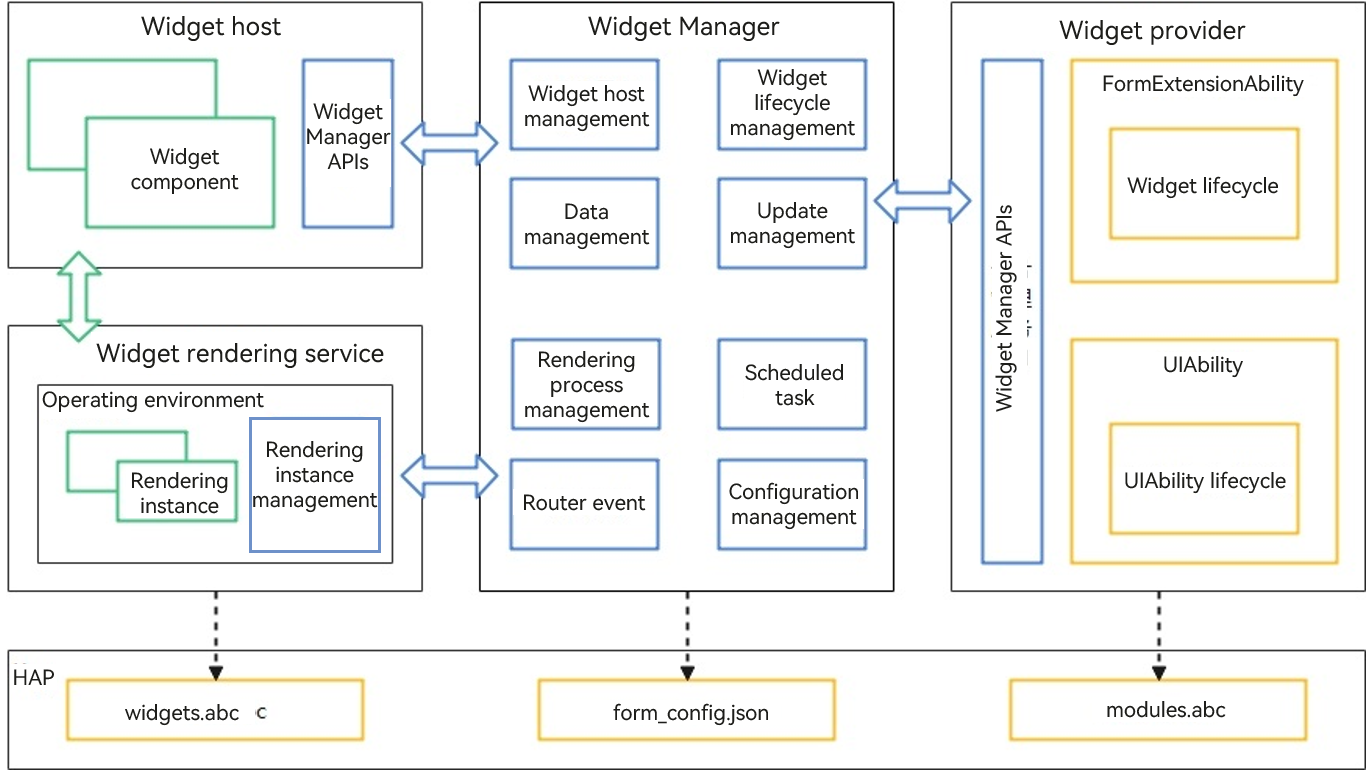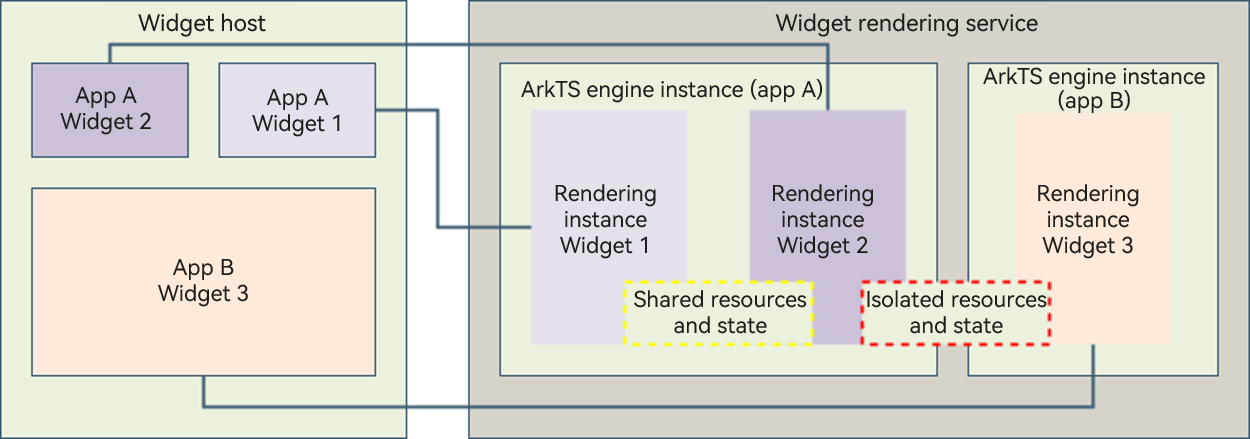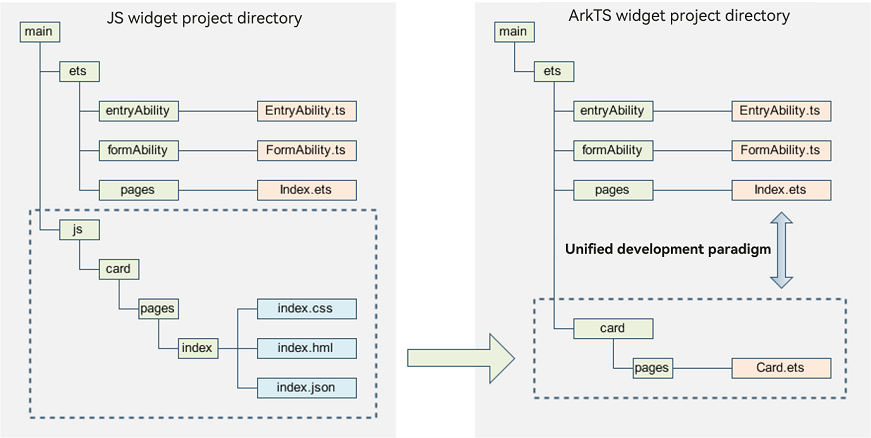harmony 鸿蒙ArkTS Widget Working Principles
ArkTS Widget Working Principles
Implementation Principles
Figure 1 ArkTS widget implementation principles

Widget host: an application that displays the widget content and controls the widget location. Only the system application can function as a widget host.
Widget provider: an application that provides the widget content to display and controls how widget components are laid out and how they interact with users.
Widget Manager: a resident agent that manages widgets in the system. It provides the formProvider and formHost APIs as well as the APIs for widget management, usage, and periodic updates.
Widget rendering service: a service that manages widget rendering instances. Widget rendering instances are bound to the FormComponent on the widget host on a one-to-one basis. The widget rendering service runs the widget page code widgets.abc for rendering, and sends the rendered data to the corresponding FormComponent on the widget host.
Figure 2 Working principles of the ArkTS widget rendering service

Unlike JS widgets, ArkTS widgets support logic code execution. The widget page code widgets.abc is executed by the widget rendering service, which is managed by the Widget Manager. Each widget component of a widget host corresponds to a rendering instance in the widget rendering service. Rendering instances of a widget provider run in the same ArkTS virtual machine operating environment, and rendering instances of different widget providers run in different ArkTS virtual machine operating environments. In this way, the resources and state data are isolated between widgets of different widget providers. During development, pay attention to the use of the globalThis object. Use one globalThis object for widgets from the same widget provider, and different globalThis objects for widgets from different widget providers.
Advantages of ArkTS Widgets
As a quick entry to applications, ArkTS widgets outperform JS widgets in the following aspects:
- Improved development experience and efficiency, thanks to the unified development paradigm
ArkTS widgets share the same declarative UI development framework as application pages. This means that the page layouts can be directly reused in widgets, improving development experience and efficiency.
Figure 3 Comparison of widget project structures

- More widget features
- Animation: ArkTS widgets support the property animation and explicit animation capabilities, which can be leveraged to deliver a more engaging experience.
- Custom drawing: ArkTS widgets allow you to draw graphics with the <Canvas> component to present information more vividly.
- Logic code execution: The capability to run logic code in widgets means that service logic can be self-closed in widgets, expanding the use cases of widgets.
Constraints on ArkTS Widgets
Compared with JS widgets, ArkTS widgets provide more capabilities, but they are also more prone to malicious behavior. To account for the impact on the widget host – typically the home screen, ArkTS widgets are subject to the following restrictions:
The .so file cannot be loaded.
The native programming language cannot be used for development.
Only partial components, events, animations, data management, state management, and API capabilities of the declarative paradigm are supported.
The event processing of the widget is independent of that of the widget host. To prevent gesture conflicts, avoid using swipers in the widget when the widget host supports left and right swipes.
In addition, ArkTS widgets do not support the following features:
Importing modules
Instant preview
Breakpoint debugging
Hot reload
setTimeOut
你可能感兴趣的鸿蒙文章
harmony 鸿蒙Using Explicit Want to Start an Application Component
harmony 鸿蒙Using Implicit Want to Open a Website
harmony 鸿蒙AbilityStage Component Container
harmony 鸿蒙Accessing a DataAbility
harmony 鸿蒙Accessing a DataShareExtensionAbility from the FA Model
harmony 鸿蒙AccessibilityExtensionAbility
harmony 鸿蒙Common action and entities Values
- 所属分类: 后端技术
- 本文标签: